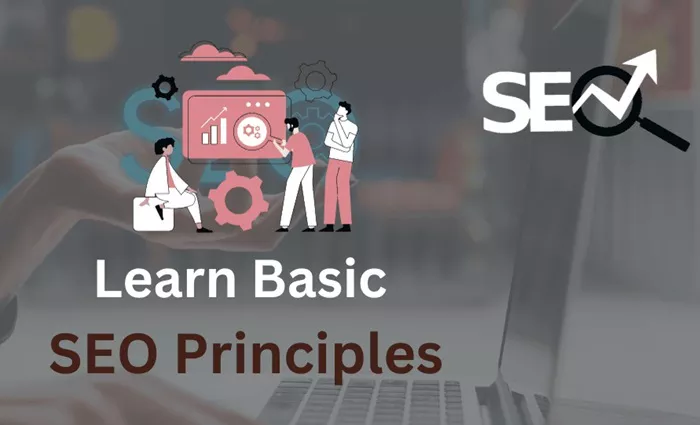Search Engine Optimization (SEO) is a set of strategies and practices aimed at improving the visibility of a website in search engine results pages (SERPs). By understanding and applying SEO principles, businesses and individuals can drive more organic traffic to their websites, enhance their online presence, and ultimately achieve their goals.
This article delves into the core principles of SEO, explaining how they work, their significance, and how to implement them effectively.
Understanding the Basics of SEO
SEO revolves around how search engines rank and display content. Search engines like Google, Bing, and Yahoo use algorithms to determine which websites best answer user queries. These algorithms assess a wide range of factors, including content relevance, quality, user experience, and technical performance.
Key components of SEO include:
Keywords: Words or phrases users type into search engines.
Content: The information provided on a website to meet user needs.
Technical SEO: Ensures that a website is accessible and well-structured.
Backlinks: Links from other websites that point to your site.
The Importance of SEO Principles
Adopting SEO principles is essential for several reasons:
Increased Visibility: Websites that rank higher in SERPs are more likely to attract users.
Cost-Effective Marketing: Organic search traffic is free and sustainable.
Enhanced User Experience: SEO encourages well-structured and fast websites, benefiting users.
Competitive Advantage: Businesses that invest in SEO often outperform those that do not.
Core Principles of SEO
1. Keyword Research and Optimization
Keyword research is the foundation of SEO. It involves identifying the search terms that users commonly use to find content related to your niche.
How to Conduct Keyword Research:
- Use tools like Google Keyword Planner, SEMrush, or Ahrefs.
- Identify high-volume and low-competition keywords.
- Focus on long-tail keywords for targeted traffic.
Tips for Keyword Optimization:
- Incorporate keywords naturally into your content.
- Optimize page titles, headers, and meta descriptions.
- Avoid keyword stuffing, which can harm your rankings.
2. High-Quality Content Creation
Content is the backbone of SEO. Search engines prioritize content that provides value, answers user queries, and is easy to understand.
Attributes of High-Quality Content:
- Relevance: Address the user’s intent.
- Originality: Offer unique insights and avoid duplicate content.
- Engagement: Write in a way that captivates and retains readers.
Best Practices for Content Creation:
- Use a conversational tone to connect with readers.
- Break content into sections with headers for readability.
- Include multimedia elements like images and videos.
3. On-Page SEO
On-page SEO involves optimizing individual web pages to rank higher and earn more relevant traffic.
Key Elements of On-Page SEO:
- Title Tags: Create descriptive and concise titles.
- Meta Descriptions: Summarize the page content in a compelling way.
- Header Tags: Use H1, H2, and H3 tags to structure content.
Additional Tips:
- Ensure your URLs are clean and descriptive.
- Use internal links to connect related content.
4. Technical SEO
Technical SEO focuses on a website’s backend and server-side configurations to improve search engine crawling and indexing.
Technical SEO Checklist:
- Mobile-Friendliness: Ensure your site is responsive to different devices.
- Site Speed: Optimize loading times for better user experience.
- Secure Website: Use HTTPS to protect user data.
- XML Sitemap: Submit sitemaps to search engines for better indexing.
5. Link Building
Backlinks signal to search engines that your site is credible and valuable. A strong link profile can significantly improve rankings.
Types of Backlinks:
- Natural Links: Earned organically from high-quality content.
- Manual Links: Acquired through outreach and partnerships.
Effective Link Building Strategies:
- Guest blogging on reputable websites.
- Collaborating with influencers or industry leaders.
- Creating shareable content like infographics.
6. User Experience (UX) Optimization
User experience plays a pivotal role in SEO. A site that is easy to navigate and engaging will retain visitors longer.
Key UX Factors:
- Navigation: Simple and intuitive menus.
- Readability: Use legible fonts and adequate spacing.
- Call-to-Actions (CTAs): Encourage users to take desired actions.
7. Analytics and Performance Tracking
SEO is not a one-time effort. Regularly monitor your website’s performance to refine your strategy.
Tools for SEO Analytics:
- Google Analytics: Tracks traffic and user behavior.
- Google Search Console: Monitors search performance and indexing.
- Third-Party Tools: SEMrush, Ahrefs, and Moz for advanced insights.
Metrics to Monitor:
- Organic traffic.
- Bounce rate and dwell time.
- Keyword rankings and backlink growth.
The Role of Local SEO
Local SEO targets users searching for businesses or services within a specific geographic area. This is particularly important for small businesses.
Tips for Local SEO:
- Claim and optimize your Google Business Profile.
- Encourage customers to leave positive reviews.
- Use location-specific keywords in your content.
Common SEO Mistakes to Avoid
Avoid these pitfalls to maintain a strong SEO strategy:
- Overloading pages with keywords.
- Ignoring mobile optimization.
- Using outdated SEO tactics like buying links.
- Neglecting content updates.
Trends in SEO
SEO is a constantly evolving field. Staying informed about emerging trends is crucial.
Predicted Trends:
- Voice Search Optimization: Tailor content for voice-activated devices.
- AI and Automation: Leverage AI tools for SEO analysis and content creation.
- Core Web Vitals: Focus on metrics like loading speed and interactivity.
Conclusion
SEO principles are essential for achieving online success. By mastering elements like keyword optimization, content creation, technical SEO, and user experience, you can improve your website’s visibility and attract your target audience.
Implement these principles consistently, monitor your progress, and adapt to changes in search engine algorithms. With dedication and strategic effort, SEO can be a powerful tool for achieving long-term online growth.
Related Topics

